Concerning the Treatment of Slaves by Hebrews
The first portion of this week’s Torah Reading deals with the issue of Hebrews owning slaves; particularly Hebrew slaves (Exo. 21:1-11) .
According to this passage, if a Hebrew acquires a Hebrew slave, they would serve that master for 6-years. In the 7th-year that slave would be freed. This is confirmed in Deuteronomy 15:12 which reads,
“And if thy brother, an Hebrew man, or a Hebrew woman, be sold unto thee, and serve thee six years; then in the seventh year thou shalt let him go free from thee” (KJV).
It would seem this ordinance involving the releasing of the Hebrew slave in the 7th month is not directly tied to the Shemitah.
It should be noted that the Hebrews failed to keep this ordinance according to Jeremiah 34:14.
Debt and Slavery
What would justify a Hebrew acquiring a Hebrew slave? The most likely reason is found in Matthew 18:25:
“But forasmuch as he had not to pay, his master commanded him to be sold, and his wife and children and all that he had and payment to be made” (KJV).
In this context, a Hebrew would acquire another Hebrew through unpaid debt.
Ancient Near Eastern custom facilitated that an individual who is in debt to another, be sold into slavery if that debtor is unable to pay off their debt. Torah, although not sanctioning or advocating the practice, established provisions for an individual who is in debt to another to be sold into slavery if the debtor is unable to pay his debt to the master.
Abba, in establishing ordinance regulating the treatment of Hebrew slaves, acknowledged the practice existed. However, Abba established time limits to the servitude. No Hebrew who was enslaved by another Hebrew could be forced into servitude for more than 6-years. That slave was to be released in the 7th year of their enslavement.
Yeshua Clarifies the Practice of Debt Slavery
Yeshua came to clarify Torah for us. In so doing, it was through parable that He taught that the debt owner always had the wherewithal and right to release or forgive his debtor’s debt (Matthew 18).
What Master’s parable teaches the Torah Observant Disciple of Yahoshua is that debt should ultimately be forgiven. No one who is indebted to us, as disciples, should be made to endure unending servitude or strung out debt to us. And this attitude should run across the board and be recognized by every disciple of Messiah.
More Than Material Debt and Slavery
Debt in this sense also transcends the material. Forgiveness is always a virtue that Father has shown to His beloved. The biggest and most pervasive debt we all owe is our sin debt. We are indebted to Father as a result of our sins. Yet Abba has provided a means whereby our debt can be forgiven. We in turn serve and obey Him for his forgiveness of our sin debt.
Likewise, we are compelled to forgive our fellow disciples any physical debts they owe us, as well as any trespasses committed against us by fellow believers.
Master instructed that we lend, hoping for nothing in return…(Luk. 6:35; NKJV).
If we harden our hearts towards those who owe us materially and on a relationship basis, then we stand the risk of not being forgiven by our Heavenly Father. In this regard, Yeshua in the Parable of the Unforgiving Servant stated:
“Then his lord (speaking of the master to the servant who refused to forgive his debtor), after that he had called him, said unto him, O thou wicked servant. I forgave thee all that debt, because thou desiredst me. Shouldest not thou also have had compassion on thy fellowservant, even as I had pity on thee? And his lord was wroth, and delivered him to the tormentors, till he should pay all that was due unto him. So likewise shall my heavenly Father do also unto you. If ye from your hearts forgive not every one his brother their trespasses” (Mat. 18:32-25; KJV).
The Making of a Bond Servant
Nevertheless, back to our Torah Reading passages: Father placed a provision in Torah whereby the servant who chooses to remain in permanent servitude to their master may willingly do so. Thus, the servant desiring bond servant status would be brought to the judgment-seat of God (according to the LXX) or to the judges (according to the KJV and other Authorized Versions) by that master. The purpose appears to be one of making the permanent servitude a publicly stated matter.
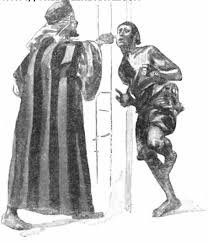
A Hebrew slave desiring to serve their master in perpetuity would undergo an ear piercing by an awl on that master’s doorpost.
Upon the conclusion of the proceeding at the judgment seat of God, the servant would then be brought to the door or door post of the master’s home. That servant’s ear would then be pierced by an awl (ie., a metal pointed tool used to punch holes in material like leather).
Thus, that servant would serve that master till the death of the master or of that of the servant (cf. Deu. 15:17).
A Shadow of Good Things to Come
This ordinance is clearly illustrated in our claiming perpetual servitude to YHVH our Elohim. Fortunate for us, Yahoshua Messiah was already pierced on our behalf having himself been judged on our behalf for our sins.

As the Days of Noah Were…Sabbath Thoughts and Reflections 8
What are the implications for us of Yeshua’s prophecy that the world He would return to would be as the days of Noah were? We discuss, think and reflect. Shabbat Shalom.
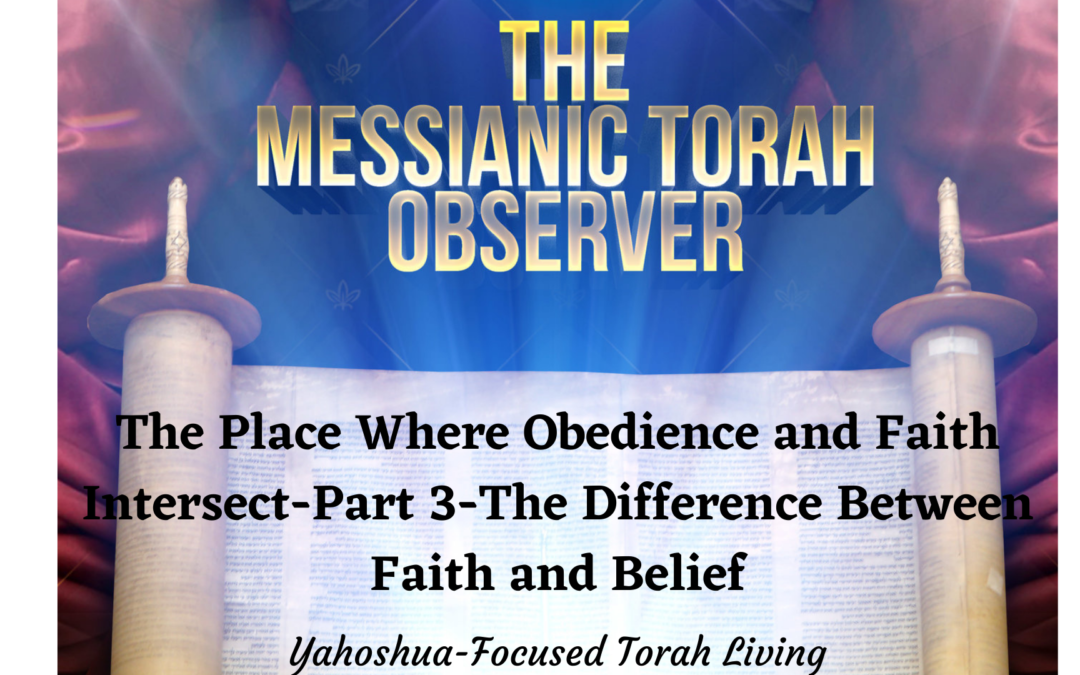
The Difference Between Faith and Belief-The Righteousness of God is the Place Where Obedience and Faith Intersect-Part 3
In our continuing exploration of Shaul’s teaching on the Righteousness of God, we answer the critical question: Is there a difference between biblical “faith” and “belief? Both terms are mentioned as important elements to our receiving of God’s Righteousness.

We Serve a Covenant-Keeping Life-Giving God-STAR-7
In this week’s Torah Reading, we discuss the Truth about the Noahide Laws; the true significance of the rainbow; and the character of God that promotes life and covenant among humanity. Come study and fellowship with us. Shabbat Shalom.

And God Remembered Noah-Sabbath Thoughts & Reflections 6
This week’s Torah Reading is the story of the saving of Noah and his family brought about through God keeping covenant and manifesting His righteousness. Come study with us. Shabbat Shalom.
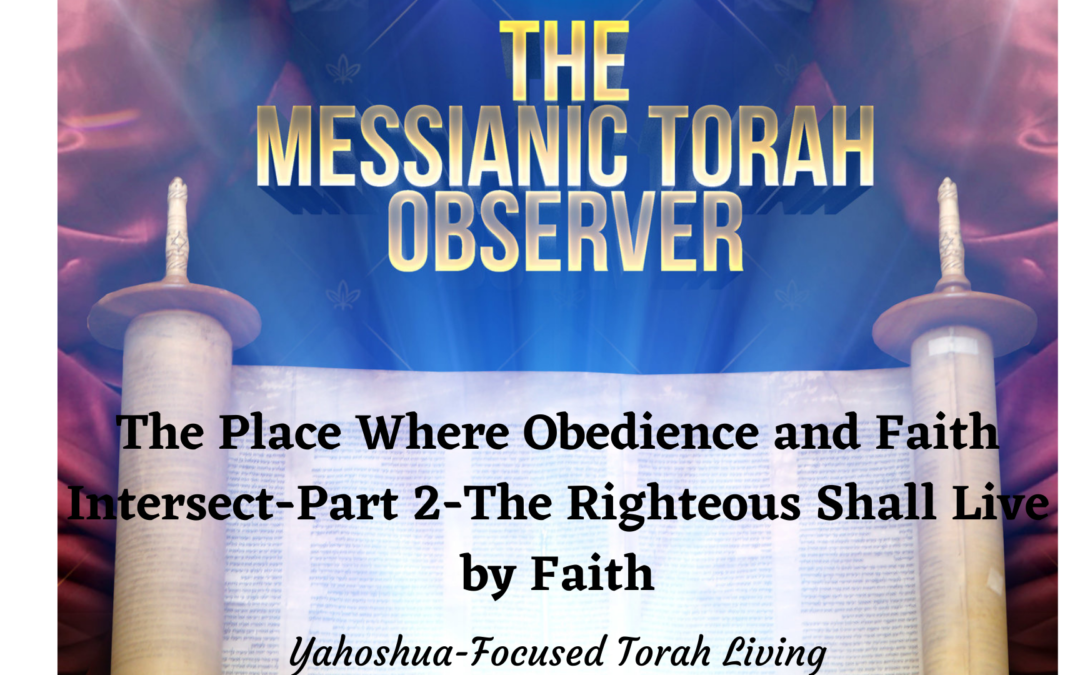
The Righteousness of God is the Place Where Obedience and Faith Intersect-Part 2-The Righteous Shall Live By Faith
Paul declared to the Romans that the just shall live by faith. What exactly did he mean by that statement, especially as it relates to our walk in Messiah? We discuss
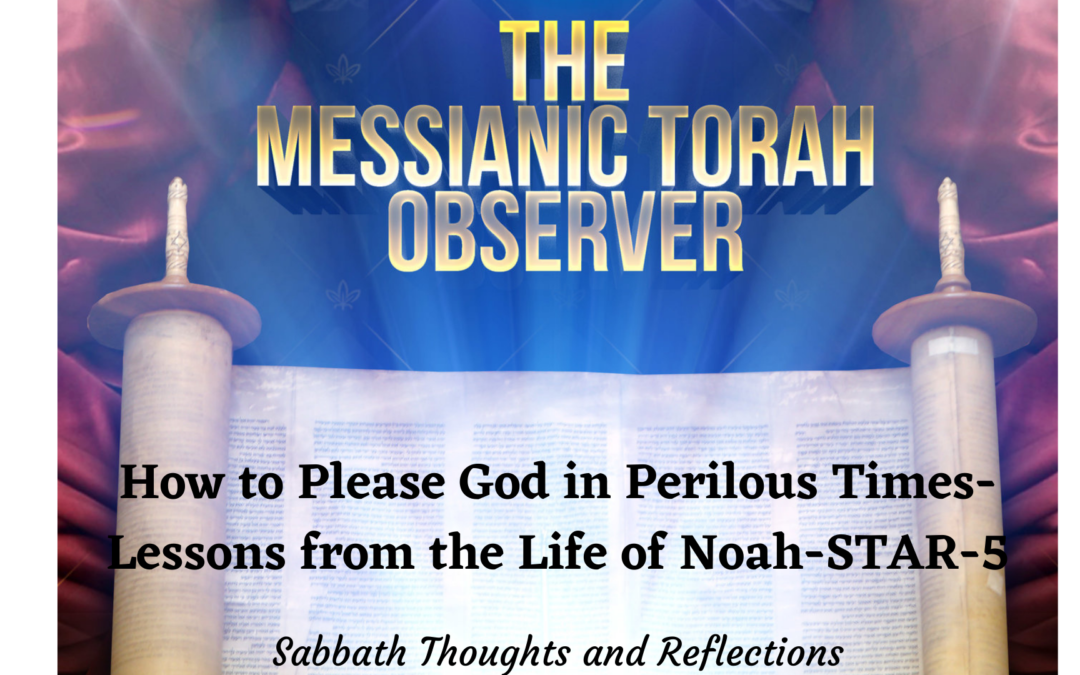
How to Please God in Perilous Times-Lessons from the Life of Noah-STAR-5
Noah pleased God in one of the most wicked periods of human history. What was it about Noah that pleased God? His story is the key to our pleasing God in these perilous times and we discuss in this installment of TMTO STAR.
Forbidden Messianic Titles and Roles for the Body of Messiah
This is "Forbidden Messianic Titles and Roles for the Body of Messiah." And this discussion is within the purview of the central theme for this ministry: "Yeshua-focused Torah Living." We are all about promoting the Netzari Faith that was once delivered to the...
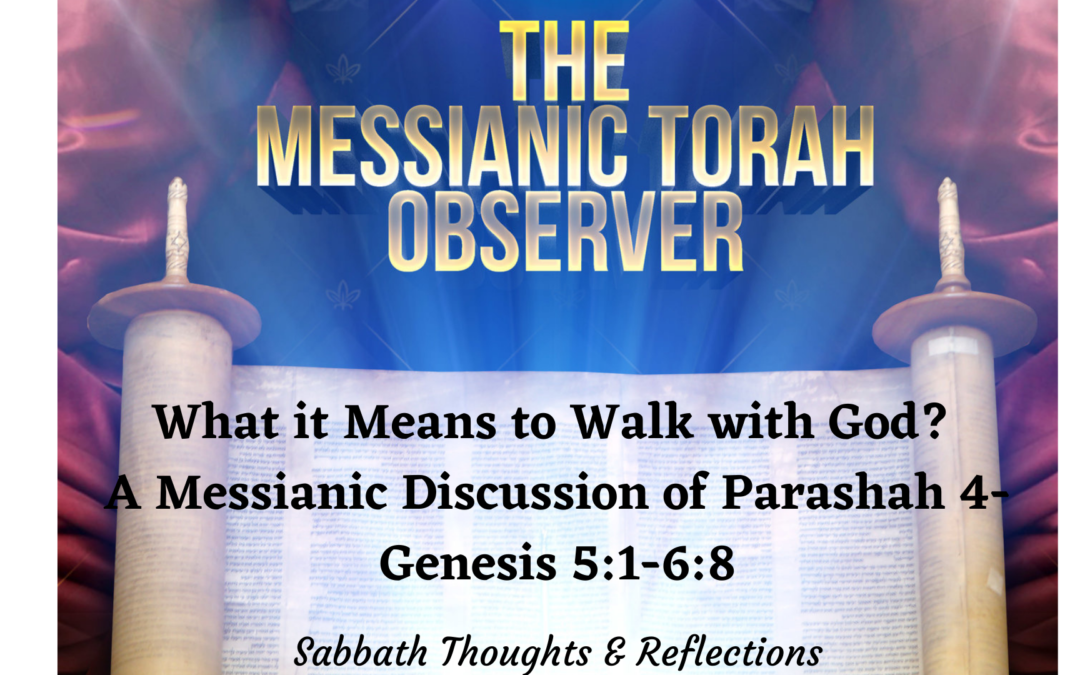
What it Means to Walk with God? STAR-4
Today’s discussion is entitled: “What it Means to Walk with God;” it is a Messianic Discussion of the 4th Parashah in the 3-year Torah Reading Cycle. Our discussion text for this Shabbat will be Genesis 5:1-6:8. I will be reading and commenting from the...
The Righteousness of God is the Place Where Obedience and Faith Intersect-Part 1-What is the Righteousness of God?
This is “The Righteousness of God is the Place Where Obedience and Faith Intersect—Part 1—What is the Righteousness of God?” Pose the Central Questions Inevitably, the central question facing Messianics is how does one balance a life of Torah-honoring with that of...
The Heart of True Worship-STAR-3-A Messianic Discussion of Genesis 4:1-26
Today’s discussion is entitled: “The Very Heart of True Worship;” it is a Messianic Discussion of the 3rd Parashah in the 3-year Torah Reading Cycle. Our discussion text for this Shabbat will be Genesis 4:1-26. I will be reading and commenting from the...

0 Comments